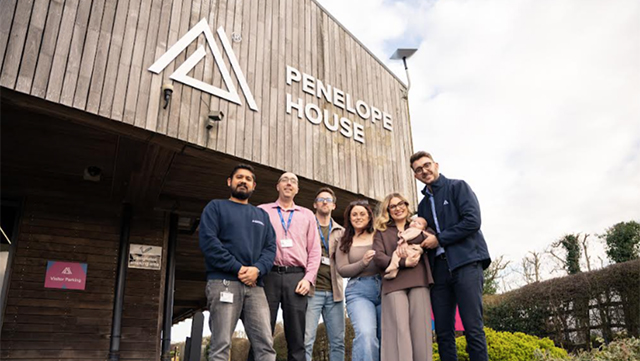COMMENT At JLL, we are committed to creating an inclusive and supportive environment for all, and on 18 October – World Menopause Day – we took steps to increase awareness of the menopause within our organisation through the launch of our associated policy, which we hope will initiate important conversations for all colleagues across the UK.
Menopause is an inevitable stage that women encounter at some point in their lives. Women represent 50.6% of the population, with an employment rate of 72.1%, so it is essential we all take the time to understand how we can support those going through it.
Call to action
Research shows that individuals experiencing severe menopausal symptoms are more likely to reduce their working hours and more at risk of leaving work altogether, with one in 10 women having left their job as a result of the menopause. This unsettling realisation, combined with the understanding that the severity and longevity of menopause-related symptoms experienced by an individual can be very debilitating, necessitates a call to action. As a workplace we must recognise our responsibility to support all employees whose lives are affected by the menopause.
At JLL we have committed to three key actions of support:
- To create an environment where people can talk about menopause more openly so that it becomes normalised. To ensure that everyone better understands how menopause symptoms can impact individuals in the workplace and that our culture fosters open conversations that translate into support and adjustments for those who need them.
- To encourage line managers to familiarise themselves with the policy and educate themselves about menopause. This will enable them to better understand the symptoms of menopause and perimenopause, the effects these can have on colleagues at work, and the support available.
- To upskill HR to be equipped to support individuals experiencing menopause, and to ensure that our health and wellbeing offerings also have provisions to provide support and are regularly reviewed and updated.
While there continues to be discomfort around the subject, we are starting to see a shift thanks to the likes of Davina McCall and Gaby Logan, who, among others, are using their platforms as public figures to turn the spotlight on menopause. By sharing their own experiences, they hope to inspire others to do the same in order keep the conversation going, raise awareness and break the taboo.
Last month, our UK Gender Balance Group hosted a discussion exploring the effects of perimenopause and menopause on women’s economic participation. The one-hour session saw incisive contributions from Matthew Cripps, member of the government’s UK Menopause Taskforce, leader of the National Menopause Improvement Programme and Warwick Business School professor; Amanda Lillington, head of supermarket investments and estates for Sainsbury’s; Sarah Grove-White, a creative wellbeing practitioner working with staff at Cardiff University; and Blessing Buraimoh, head of diversity and inclusion at JLL Work Dynamics. Attendees came away with examples of successful policies, guidelines and support, a view of the government’s direction of travel on the subject and an understanding of how to create a positive working environment in terms of organisational culture, management and building design.
Lost talent
Change does not happen overnight. While organisations making a pledge and committing to give active support to women going through the menopause is a good starting point, we must go further. We must ensure that we are constantly educating ourselves and others, listening, understanding and adapting, as well as evolving to facilitate menopause in our workplaces.
If we fail to do this, we risk losing the experience, wisdom and brainpower that women in senior positions (or on their way to senior positions) possess. The knock-on impact of that will be that we lose the diversity of decision-making in our organisation, and as we know, the more diverse groups there are within a business, the better the decisions made – whether that be strategic, tactical or operational.
As businesses, we need to keep people doing the jobs they love, as well as retain the talent and expertise they bring to the business. Therefore, it is in our best interest to accommodate their needs and learn about the symptoms associated with perimenopause and menopause so that even if those going through it do not recognise it themselves, their line manager or colleague is prepared to adapt to make their experience through this life stage a positive one within the working environment.
Amy Russell is UK DEI lead at JLL











